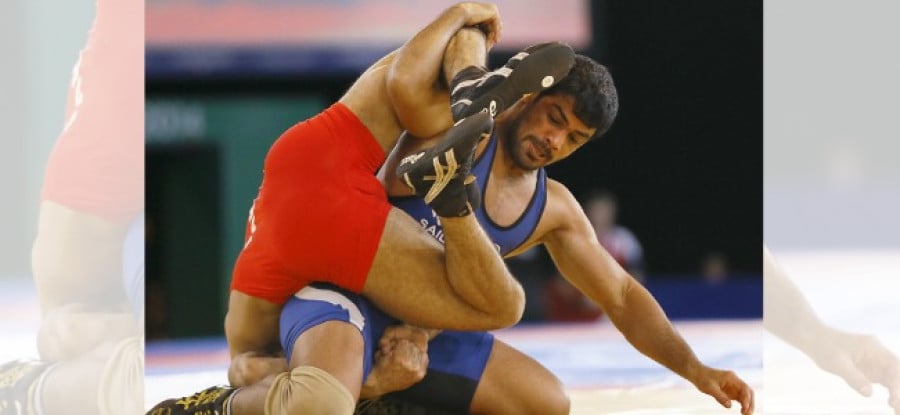Olympic selection disputes: Sushil Kumar v Wrestling Federation of India

The rather long-drawn saga regarding India’s representative for the competitive wrestling event in the freestyle 74 kg category at the Olympic Games in Rio finally seems to have approached a conclusion.
Having moved the High Court in New Delhi, Sushil Kumar awaited a decision regarding the selection process for the Games, hoping that the Court sees merit in his plea for selection by trials, rather than an automatic route of selection.
However on 6 June 2016, the High Court, for reasons we’ll explore below, dismissed his plea, much to Kumar’s disappointment.
FACTS
- The dispute involved Sushil Kumar and the Wrestling Federation of India (WFI). The WFI chose to select Narsingh Yadav in the freestyle 74 kg category, leaving Sushil Kumar without a place in the squad.
- Sushil Kumar won back to back Olympic medals in 2008 and 2012, winning bronze and silver respectively in the 66 kg freestyle category.1
- In 2013, the International Wrestling Federation (Now United World Wrestling) decided to scrap the freestyle 60 kg and 66 kg weight categories for the Rio Olympic Games 2016.2
- At the time, Kumar expressed his desire to move up a weight class in order to compete in the freestyle 74 kg category.3 The following year, at the 2014 Commonwealth Games, he went on to win the gold medal in the 74 kg category,4 and even though his competition was modest, his participation in Rio was foreseeable. Since Glasgow however, Kumar has not participated in any event, citing an injury as the main reason for his absence from events such as the Asian Games in Incheon and the 2015 World Championships in Las Vegas.
- At the 2015 World Championships in Las Vegas, Narsingh Yadav won the bronze medal in the freestyle 74 kg category and, as was tradition, the WFI awarded him the position to represent India at the Rio 2016.5
- Sushil Kumar disputed the decision of the WFI, claiming that since the berth is allotted to the nation and not the athlete, selection by way of trials ought to be conducted.6
SELECTION BY TRADITION vs. SELECTION BY TRIALS
The WFI awarded Yadav the Olympic berth in the 74 kg category as a result of his bronze medal at the World Championships in Las Vegas, which is a qualifying tournament for the Olympic Games.7 The WFI’s decision was based upon their common practice or tradition whereby the athlete who secures the berth at the qualifying tournament in a particular category is selected to compete at the Games in that category.8 Unlike many other Olympic selection procedures, WFI has no formal procedure in place for such selections, and no set of regulations that govern the process.
To continue reading or watching login or register here
Already a member? Sign in
Get access to all of the expert analysis and commentary at LawInSport including articles, webinars, conference videos and podcast transcripts. Find out more here.
- Tags: Governance | India | Olympic | Olympic Games Rio de Janeiro 2016 | Paralympic | Regulation | United World Wrestling | Wrestling | Wrestling Federation of India
Related Articles
- A review of the IPL and BCCI spot-fixing scandal – governance, corruption and reform
- How effective is India’s new Sports Integrity Unit in tackling corruption?
- Indian Super League Regulatory Commission hand out heavy penalty to FC Goa
- “Throwing” down the gauntlet: What constitutes an illegal delivery in cricket?
Written by
Saurabh Mishra
Saurabh is a lawyer working as counsel for Star India Pvt. Ltd. He is also associated with the Football Players Association of India (FPAI). He received his B.A./LLB from The West Bengal National University of Juridical Sciences, Kolkata, and was a recipient of the Graduate Scholar Award at the Fifth International Conference on Sport and Society in July 2014. He has previously worked with organisations such as Adidas and Atletico de Kolkata, a franchise in the Hero Indian Super League.




